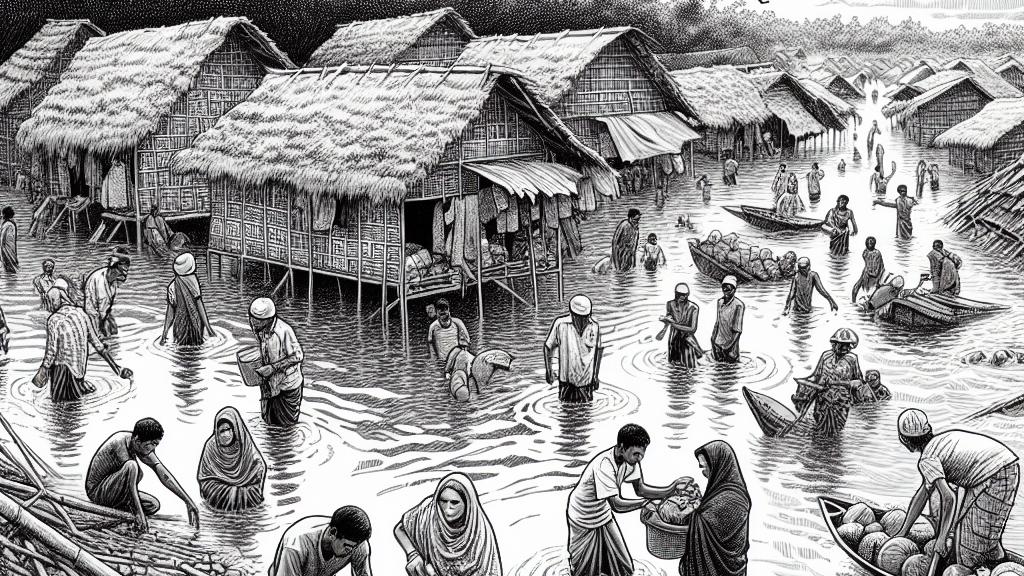Devastation Unleashed: Monsoon Deluge Claims Lives and Displaces Millions in Bangladesh!
Overview
- Flash floods kill 15 and displace over 4.5 million in Bangladesh, predominantly in Feni district.
- Political unrest complicates the disaster response as the interim government faces mounting challenges.
- Accusations against India over water management exacerbate regional tensions amid ongoing relief efforts.

Catastrophic Flooding Hits Bangladesh
On August 23, 2024, Bangladesh was struck by severe flash floods that resulted in the tragic loss of at least 15 lives and impacted over 4.5 million residents, particularly in the coastal district of Feni. Known for its susceptibility to monsoonal floods due to its deltaic geography, Feni witnessed homes submerged under rising waters. Many residents have been forced into temporary shelters as they seek safety and essential resources such as food and clean water. Eyewitnesses have reported heart-wrenching scenes as families try to salvage belongings from their inundated homes. Relief efforts are underway, spearheaded by the Bangladeshi Red Crescent and other humanitarian organizations, but the scale of the disaster presents severe logistical challenges that strain these operations.
Political Turmoil Deepens Humanitarian Crisis
As the floods wreak havoc, they compound an already volatile political situation in Bangladesh. Following the ousting of former Prime Minister Sheikh Hasina amid public unrest and protests, the nation finds itself under the interim leadership of Nobel laureate Muhammad Yunus. This new government faces tremendous pressure not only to manage the humanitarian crisis but also to address underlying political tensions and push for necessary reforms. The merging of political instability with a devastating natural disaster reveals harsh realities regarding the nation's disaster preparedness and response strategies. In this precarious environment, the government's ability to effectively assist affected citizens is critically tested, and public confidence hangs in the balance.
Escalating Regional Tensions and Relief Efforts
The floods have ignited international tensions, particularly between Bangladesh and India, as leaders in Bangladesh allege that India's water management practices exacerbate the flooding crisis. Accusations suggest that India released water from its dams, contributing to the disaster. The Indian government responds by highlighting that their regions also experienced severe rainfall, thereby attributing the flooding to natural climate patterns rather than intentional actions. This dispute complicates relief efforts as both countries navigate the fallout of shared waterways and climatic realities. Within Bangladesh, nearly 190,000 people have been evacuated to emergency shelters, where relief agencies strive to provide food, medical supplies, and psychological support. The interplay between environmental challenges and diplomatic relations highlights the necessity for collaboration and communication in crisis management.

Loading...